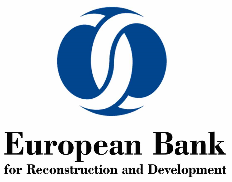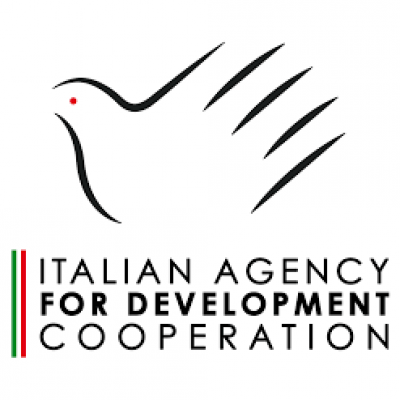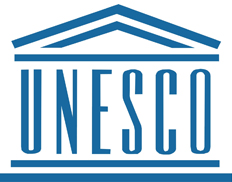Details
Description
Background
Albania has made important steps towards establishing a democratic state, functioning market economy, maintaining a stable economic growth, and achieving human development. Over the recent years the Government has adopted a range of significant strategies and national action plans in regard to delivering social protection reform and boosting social inclusion, and it has built the legal framework of the social protection and social inclusion system with the vision of providing integrated social services at local level capable to ensure the inclusion of all vulnerable groups and persons in Albania. However, poverty in Albania is still high hence there is significant needs for social protection services for specific segments of society, particularly for Roma and Egyptian communities and persons with disabilities, as well as vulnerable women, households with children, older persons, people with intermittent employment, and those living in rural areas and from excluded groups. In order to support improved social services, UN Agencies have engaged in implementing “Leave No-One Behind” Joint Programme, second phase /LNB2 (2021 – 2025). The improvement of social inclusion will be supported by interventions at macro level (central authorities), at meso level (municipalities and civil society organisations) and at micro level, actively involving the target groups into the programme’s implementation.
The LNB second phase programme goal is: “Vulnerable persons and groups have improved access to gender responsive public services that support their social rights, social inclusion and well-being, and are empowered to have a voice in public policy decision-making affecting their lives, and to hold decision-makers accountable for policy implementation”. In order to achieve this, the programme pursues three objectives:
to empower beneficiaries in need of measures for their social protection to access and to contribute themselves to their social inclusion;
to capacitate municipalities/ regions and service providers to provide services and to promote social inclusion;
to capacitate state authorities in the further development and implementation of policies relevant for social inclusion and to further operationalize/ develop social inclusion funding mechanisms, including scaling up of the Social Fund.
While the programme will cover all of Albania, by empowering vulnerable people and by promoting systemic reform of social service and inclusion provision countrywide, the programme adopts geographic foci to ensure that 30 (of a total of 61) municipalities are suitably capacitated to provide a system of integrated social services to cover the needs of the vulnerable population. The programme will primarily use instruments for capacity building and organizational development. Sustainability of the programme investments and effects and scaling up of successful practices will be a constant concern of the programme.
The Leave No One Behind Joint Programme (second phase) will be implemented through the Delivering as One (DaO) mechanism, within the Government of Albania-UN Sustainable Development Cooperation Framework 2022-2026, with the joint participation of four UN agencies of UNDP, UNICEF, UNWOMEN and UNFPA and in close partnership with relevant governmental bodies at central and local level.
Duties and Responsibilities
The Albanian Ministry of Health and Social Protection (MHSP) and the Local Self-Government Units (LSGUs) in Albania are engaged in the implementation of the Law on “Social Care Services” (Law 121/2016) which establishes an integrated system of services offered by public and non-public service providers to individuals and families in need.
Since the adoption of the Law by the Albanian Parliament in November 2016, a series of related bylaws (19) have been issued to regulate, among others, the development and implementation of (Local) Social (Care) Plans, and the establishment and functioning of the financing mechanism of social care services such as the Social Fund. Five years from the entry into force of the law and three years from the operation of the financial mechanism, the Ministry of Health and Social Protection seeks to make an analysis of the practice and regulatory framework of the Social Fund in order to undertake the necessary adjustments. The final goal is to ensure the proper functioning of the social fund and its use in meeting the needs for social care services of vulnerable groups across the country.
In the context of the support provided to national institutions in further developing the Social Fund to promote/ expand/ scale up social care services targeted to vulnerable groups, UNDP/LNB Programme will provide technical assistance to the MHSP to conduct the above-mentioned analysis, validate the analysis’ findings and recommendations during meetings with relevant stakeholders and undertake the necessary changes in coordination with the European Union-funded Support for Social Inclusion programme.
To provide the MHSP with the requested technical assistance, LNB programme is seeking to recruit three national consultants, namely a legal expert, a social services expert, and an economics expert, who will work jointly and whose tasks and responsibilities are described below. The consultants will be contracted by UNDP individually although they might apply jointly.
Duties and responsibilities
Under the guidance of the UNDP Program Specialist for Social Inclusion and the supervision of the UNDP Programme Coordinator for “Leave No One Behind” (LNB2) and the technical direction and support of the MHSP, the three consultants on analysing the regulatory framework and the implementation of the Social Fund financing the social care services in the country will carry out the following tasks:
Get familiar with the national policy and legal framework on social care services, the existing local social care plans and the existing reports on the implementation of the Social Fund.
Prepare a detailed work plan with the timeline for the assignment, to be discussed and agreed with UNDP/LNB team and the MHSP.
In close cooperation with the MHSP, and by combining the desk review with the work in the field, conduct an analysis of the practice and legislation related to the social fund and social plans comprising as follows:
Analysis of the practice with relation to the social fund implementation. Analyze the difficulties encountered by LSGUs to: access the central government’s funds allocated as Social Fund; feed the social fund from its own sources and /or donors’ sources; and, implement the social fund. This shall be carried out through consultation of the relevant monitoring & progress reports already prepared by the MHSP, the related study reports produced by other UN/international agencies and through consultation with LSGUs and regions (qarks). The analysis will conclude with substantial recommendations for changes / adjustments, as appropriate.
Analysis of the local social plans’ implementation. Analyze the difficulties encountered by LGUs and Qarks in planning, budgeting and approving the social plans, considering also the requirements of the law on local self-governance. The analysis shall also highlight the role of the State Social Service (SSS) and of the region (qark) in developing, monitoring and reviewing the local (and regional) social plans. It shall also show to what extent the social fund disbursed by the central government has covered the implementation of the individual local plans, and whether there is any analysis of the needs for social care services nationwide influencing the distribution of the state budget funds to reduce uneven development within the country. The analysis shall also focus on the challenges faced by LSGUs, including those deriving from the law on local self-governance. The analysis will conclude with substantial recommendations for practice changes / adjustments, as appropriate.
Analysis of the legislation related to the social fund. Identify and analyze the deviations of practice from legislation on the social fund. Indicate the reasons and constraints, including the financial ones, encountered by the institutions at the central and local levels, to apply the regulatory framework. The analysis shall highlight the legal gaps existing in the current regulatory framework and, as appropriate, shall conclude with substantial recommendations for legal amendments.
Analysis of the regulatory framework related to social plans. The analysis will assess the coherence between the regulatory framework of social plans and the regulatory framework of the social fund as well as between the legislation on social care services and the legislation on local self-governance. The analysis will conclude with substantial recommendations for legal amendments as appropriate.
Summarize the findings and recommendations of the whole analysis in a report written in Albanian language with the executive summary also in English language.
Facilitate the presentation, discussion and validation of the findings, conclusions and recommendations of the above analysis during meetings to be organized by MHSP with the participation of representatives from the MHSP, MFE, SSS, municipalities, regions, and development programs (EU, UN, WB). Reflect the stakeholders’ comments and feedback in the Analysis Report.
Develop a plan of actions highlighting the relevant amendments and changes of the regulatory framework and practices, to be implemented within 6 months from its approval. The plan of action should describe the specific intervention, expected results, responsible authority/ies, the respective timeline and the need for expertise if any.
Expected Outputs and Deliverables: Sep.2022 – Jan. 2023
Deadline and level of effort
Suggested work plan & timeline, including the methodology on how the consultants will approach and conduct the work and the draft outlines of the main outputs, to be agreed with UNDP/LNB Project and the MHSP;
max. 3 w/d total
Desk and field analysis of the practice and legislation related to the social fund and social plans and drafting of the related report;
max. 45 w/d total
Facilitation of the presentations and discussions of the analysis’ findings with relevant stakeholders and reflection of their comments and feedback in the analysis report;
max. 15 w/d total
Development of the Action Plan in response to the Analysis Report’s recommendations.
max. 12 w/d total
Duration of the work
The duration of this assignment is for a maximum of 75 workdays total (25 w/d each consultant) over the period of 4 months (September 2022-January 2023). The target start date is September 20th, 2022. The implementation of the assignment requires travel in the country (max 15 municipalities).
The indicative list includes:
Municipalities which benefited from the Social Fund:
Big-size: Tirana. Elbasan, Korce, Lushnje;
Medium-size: Roskovec, Prrenjas, Kavaje, Rogozhine, Maliq, Belsh.
II.Municipalities which have not benefited from the Social Fund
Big-size: Shkodra, Kamez
Medium-size: Dimal, Shijak
Small-size: Puke
Competencies
Corporate:
Demonstrates integrity by modelling the UN’s values and ethical standards
Commitment to UNDP’s mission, vision and values;
Sensitivity to cultural, gender, religion, race, nationality and age differences;
Treats all people fairly without favoritism
Functional Competencies:
Demonstrates professional competence and is conscientious and efficient in meeting commitments, observing deadlines and achieving results;
Excellent understanding of vulnerabilities, social services and human rights;
Excellent understanding of social protection sector, public finance, planning and budgeting;
Analytical thinking, research and creativity, writing, reporting and presentation skills;
Ability to consult with a broad range of government and non-government stakeholders and to adapt to a dynamic working environment;
Strong interpersonal, teamwork and communication skills.
Knowledge and skills to mainstream gender equality in outputs.
Required Skills and Experience
Academic qualifications:
The legal expert - postgraduate degree in Law;
The social service expert - postgraduate degree in Social Sciences or closely related field of studies;
The economics expert – postgraduate degree in Economics or closely related field of studies.
Relevant Experience:
Minimum seven years of progressive work experience in the area of social protection policies, legislation and programmes;
Substantial research experience in conducting analysis and reporting on policy and legislation implementation with relevance to protection of vulnerable groups;
Relevant experience with UN Agencies or other international organizations would be appreciated;
Language
Fluency in written and spoken Albanian and English
Evaluation Procedure
UNDP applies a fair and transparent selection process that would consider both the technical qualification of Individual Consultants as well as their financial proposals. The contract will be awarded to the candidate whose offer:
Is deemed technically responsive / compliant / acceptable (only technically responsive applications / candidates will be considered for the financial evaluation)
And has obtained the highest combined technical and financial scores.
Technical Criteria - 70% of total evaluation – max points: 70
Criteria A: Seven year of progressive work experience on social protection policies, legislation and programmes – max points: 20
Criteria B: Substantial experience in conducting analysis and reporting on policy and legislation implementation with relevance to social protection of vulnerable groups – max points: 25
Criteria C: Relevant experience with UN Agencies or other international organizations – max points: 10
Criteria D: Relevance of Educational background – max points: 15
Financial Criteria - 30% of total evaluation – max points: 30
Candidates obtaining a minimum of 70% (49 points) of the maximum obtainable points for the technical criteria (70 points) shall be considered for the financial evaluation.
Contract Award
Candidate obtaining the highest combined scores in the combined score of Technical and Financial evaluation will be considered technically qualified and will be offered to enter into contract with UNDP.
Payment modality
Payment to the Individual Contractor will be made based on the actual number of days worked, deliverables accepted and upon certification of satisfactory completion by the LNB Project Manager.




